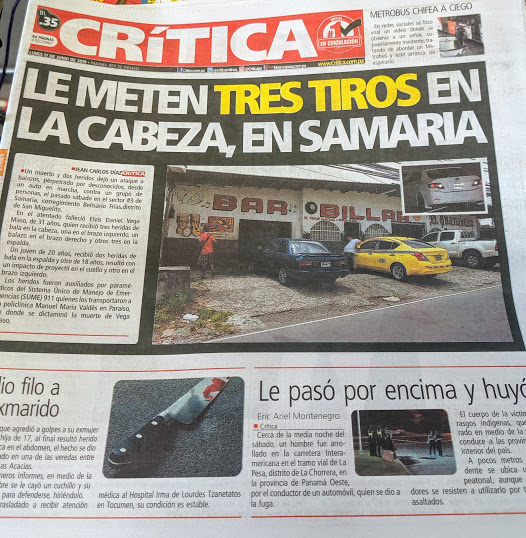
“Con hielo?”
The flight attendant looks down at me from behind her serving cart, awaiting my response. From my seat I looked back up at her, blankly.
A second ago I had successfully requested apple juice in Spanish, and now I had no idea what was happening. Reverting to English we determined that no, I did not want ice. I wasn’t even off the plane in Panama yet, and I felt foolish.





Learning a new language has been on my “things to do in my life” list for nearly twenty years. As I quickly discovered, the first leaps into a new sea of words are graceless flops. You flail, sputtering, back to shore and have another go. It’s like you are an infant again. Incapable, inarticulate, dependent. But with the adult burdens of self-consciousness and frustration. I often think, “I’d love to be able to discuss history, attitudes towards race, or what you like to do for fun, but since I am at ‘The Shoes Are Blue’ level, I cannot.” For now.
Some of the expats here would beg to differ with my above self-assessment. They have noted my apparent capacity to sustain conversation with locals beyond “dos cervezas por favor”. And it is true to an extent. Two months of daily online lessons and real-life encounters with people, media, and supermarket signage has left me with the capacity to confidently cannonball into the linguistic deep end en espanol. My technical merit and artistic impression scores vary.
When I am talking, I do my best with my limited vocabulary to put together a story that will get through. I often pick my topics based on the words I actually have at my disposal. Can’t remember the word for “uncle”? That’s ok, I know “brother of my mother”. Not sure of the proper past tense conjugation of a verb? Big effing deal, I’ll take a guess and even if it’s wrong they’ll get the idea. A jumble of words comes out more-or-less in the right order, most of the time.
Listening and understanding is harder. You don’t necessarily know the topics coming at you. Also, my “paying attention face” is dialed up to 10, which seems to encourage people to speak faster. I nod as if I understand, and sometimes I repeat/rephrase to be sure I did. Spanish-speakers who also speak English tend to slow down and use easier sentences, probably because they know what it’s like. The locals who have only their own dialect do not have that frame of reference, so it is tougher with them. All the same, at the house we’ve managed discussions of work schedule changes, leaky pipes, and other domestic topics.
I am not about to dig into Don Quijote in Miguel de Cervantes’ original text. But now I can passably skim a feature article in the Spanish-language edition of Runner’s World. Most important though, there are half-a-billion people on the planet I can now connect with, albeit modestly, in their own idiom.
